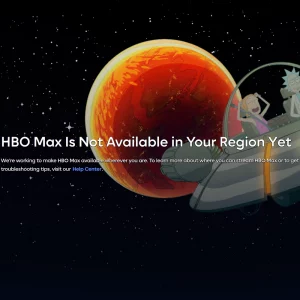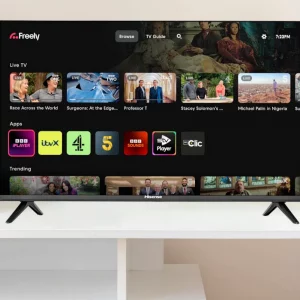Sponsored Links
UPDATE UK ISPs and Google Slam Rushed Digital Economy Bill
Posted: 09th Apr, 2010 By: MarkJ
 Internet advertising and website search giant Google has joined with UK ISPs, such as TalkTalk and the ISPA UK, to condemn the controversial Digital Economy Bill (DEB), which was passed yesterday as part of parliaments pre-election "wash-up" (rushed) legislation processing. The last minute changes also appear to have allowed the hotly contested website blocking proposals to remain; this would be used against websites and services that allegedly contain copyright infringing material, but could also impact legitimate search engines and sites like YouTube.
Internet advertising and website search giant Google has joined with UK ISPs, such as TalkTalk and the ISPA UK, to condemn the controversial Digital Economy Bill (DEB), which was passed yesterday as part of parliaments pre-election "wash-up" (rushed) legislation processing. The last minute changes also appear to have allowed the hotly contested website blocking proposals to remain; this would be used against websites and services that allegedly contain copyright infringing material, but could also impact legitimate search engines and sites like YouTube.A Google Spokesperson said:
"The proposals to introduce website blocking - now included in Clause 8 - have escaped proper scrutiny. They were introduced 24 hours before a crucial vote in the House of Lords, without a full debate over whether such a policy is right in principle.
We absolutely believe in the importance of copyright, but blocking through injunction creates a high risk that legal content gets mistakenly blocked, or that people abuse the system."
"The proposals to introduce website blocking - now included in Clause 8 - have escaped proper scrutiny. They were introduced 24 hours before a crucial vote in the House of Lords, without a full debate over whether such a policy is right in principle.
We absolutely believe in the importance of copyright, but blocking through injunction creates a high risk that legal content gets mistakenly blocked, or that people abuse the system."
TalkTalk's Andrew Heaney added:
"Many draconian proposals remain such as the responsibility on customers to protect their home networks from hacking at a collective cost of hundreds of millions of pounds a year, the presumption that they are guilty unless they can prove themselves innocent and, as in China, the potential for legitimate search engines and websites to be blocked.
This is made all the more appalling by the ability of big music and film companies to influence government and the absence of any proper debate or scrutiny by MPs – only 5% of MPs turned up for the brief debate yesterday and the other important Parliamentary stages will be bypassed in the wash-up process.
TalkTalk will continue to battle against these oppressive proposals – they will require ’secondary legislation’ before they can be implemented.
After the election we will resume highlighting the substantial dangers inherent in the proposals and that the hoped for benefits in legitimate sales will not materialise as filesharers will simply switch to other undetectable methods to get content for free.
In the meantime we stand by our pledges to our customers:
•Unless we are served with a court order we will never surrender a customer’s details to rightsholders. We are the only major ISP to have taken this stance and we will maintain it.
•If we are instructed to disconnect an account due to alleged copyright infringement we will refuse to do so and tell the rightsholders we’ll see them in court."
"Many draconian proposals remain such as the responsibility on customers to protect their home networks from hacking at a collective cost of hundreds of millions of pounds a year, the presumption that they are guilty unless they can prove themselves innocent and, as in China, the potential for legitimate search engines and websites to be blocked.
This is made all the more appalling by the ability of big music and film companies to influence government and the absence of any proper debate or scrutiny by MPs – only 5% of MPs turned up for the brief debate yesterday and the other important Parliamentary stages will be bypassed in the wash-up process.
TalkTalk will continue to battle against these oppressive proposals – they will require ’secondary legislation’ before they can be implemented.
After the election we will resume highlighting the substantial dangers inherent in the proposals and that the hoped for benefits in legitimate sales will not materialise as filesharers will simply switch to other undetectable methods to get content for free.
In the meantime we stand by our pledges to our customers:
•Unless we are served with a court order we will never surrender a customer’s details to rightsholders. We are the only major ISP to have taken this stance and we will maintain it.
•If we are instructed to disconnect an account due to alleged copyright infringement we will refuse to do so and tell the rightsholders we’ll see them in court."
The ISPA Commented:
"ISPA is extremely disappointed by the agreement between the Labour and Conservative front benches to push through the Digital Economy Bill despite serious concerns remaining about some clauses of the Bill, which have been recognised by MPs on all sides of the House. The decision to accept the Government amendment to clause 18, which enables the Secretary of State to make provisions about the granting of blocking injunctions by a court, is unacceptable given the lack of consultation on the impact of the clause.
Despite the inclusion of some safeguards that have improved the clauses on unlawful P2P filesharing, the case for the technical obligations contained in clauses 11-17 is yet to be made. It is with much regret that the majority of parliamentarians, with some notable exceptions, have been persuaded by copyright owners to forego the necessary parliamentary scrutiny in order to rush through legislation that in many ways is disproportionate, unworkable and will serve only to preserve failing business models and prevent new innovative lawful models of distributing content online."
"ISPA is extremely disappointed by the agreement between the Labour and Conservative front benches to push through the Digital Economy Bill despite serious concerns remaining about some clauses of the Bill, which have been recognised by MPs on all sides of the House. The decision to accept the Government amendment to clause 18, which enables the Secretary of State to make provisions about the granting of blocking injunctions by a court, is unacceptable given the lack of consultation on the impact of the clause.
Despite the inclusion of some safeguards that have improved the clauses on unlawful P2P filesharing, the case for the technical obligations contained in clauses 11-17 is yet to be made. It is with much regret that the majority of parliamentarians, with some notable exceptions, have been persuaded by copyright owners to forego the necessary parliamentary scrutiny in order to rush through legislation that in many ways is disproportionate, unworkable and will serve only to preserve failing business models and prevent new innovative lawful models of distributing content online."
It goes without saying that not everybody agrees, with Rights Holders like the Federation Against Software Theft (FAST) being quick to applaud DEB despite its obvious problems. But then they would.
John Lovelock, chief executive of FAST, said:
"The creative industries are today what manufacturing used to mean to the UK’s economy in previous decades. IP contributes a total of £53 billion to our GDP, which equates to around eight per cent overall, while the creative industries that include software, film, music, games, eBooks and other sectors are responsible for employing 1.9 million people. Having such a strong impact on our country’s financial position, it’s been astounding that it’s taken this long for it to reach the statute books.
Issues of software piracy, counterfeiting, illegal file-sharing, lack of compliance in business together with a lack of appreciation for copyright among the public are all current and serious threats to the economy. As a country we must show leadership and empower our current and emerging industry. The Bill is a step in the right direction as we now have a course of action to impede further damage, but there is a sting in the tail. Rights holders must work to make the most of it including court action against the worst culprits or there is a risk little will be achieved."
"The creative industries are today what manufacturing used to mean to the UK’s economy in previous decades. IP contributes a total of £53 billion to our GDP, which equates to around eight per cent overall, while the creative industries that include software, film, music, games, eBooks and other sectors are responsible for employing 1.9 million people. Having such a strong impact on our country’s financial position, it’s been astounding that it’s taken this long for it to reach the statute books.
Issues of software piracy, counterfeiting, illegal file-sharing, lack of compliance in business together with a lack of appreciation for copyright among the public are all current and serious threats to the economy. As a country we must show leadership and empower our current and emerging industry. The Bill is a step in the right direction as we now have a course of action to impede further damage, but there is a sting in the tail. Rights holders must work to make the most of it including court action against the worst culprits or there is a risk little will be achieved."
It's interesting to note that the DEB remains incredibly one-sided, with earlier ideas of more flexible copyright licensing and new economic models being somewhat lost amongst the wider debate. Not that everybody’s voice appears to have been heard in that debate or even acknowledged.
UPDATE 10th April 2010
Some further industry comments to add.
Darren Farnden, Head of Marketing at Entanet UK, said:
"We’re utterly disappointed in the underhand way in which the government has rushed this complex and controversial Bill through into law. It hasn’t enabled the affected parties’ or MPs’ views to be considered and, yet again, demonstrates how political parties are using controversial issues such as copyright infringement to play a political game prior to the election. It’s our view that several aspects of this Bill will be severely detrimental to the Internet industry, the Internet itself, the public and the UK as a whole. The use of IP tracking isn’t an accurate way of tracking down copyright infringers; guilty until proven innocent is still the wrong approach; disconnection and throttling is not a proportionate ‘punishment’; and website blocking is not the answer. The list goes on.
....
An interesting and perhaps worrying note regarding the DEB is that in a leaked memo the Minister for Digital Britain, Stephen Timms, quite obviously confuses what IP stands for in terms of an IP address. In the letter he refers to an IP address as an ‘Intellectual Property address’ as opposed to its correct definition as an ‘Internet Protocol address’. Worryingly this is the person who wrote the original Digital Britain Report from which the DEB was devised. I’m starting to see why this is all so flawed."
"We’re utterly disappointed in the underhand way in which the government has rushed this complex and controversial Bill through into law. It hasn’t enabled the affected parties’ or MPs’ views to be considered and, yet again, demonstrates how political parties are using controversial issues such as copyright infringement to play a political game prior to the election. It’s our view that several aspects of this Bill will be severely detrimental to the Internet industry, the Internet itself, the public and the UK as a whole. The use of IP tracking isn’t an accurate way of tracking down copyright infringers; guilty until proven innocent is still the wrong approach; disconnection and throttling is not a proportionate ‘punishment’; and website blocking is not the answer. The list goes on.
....
An interesting and perhaps worrying note regarding the DEB is that in a leaked memo the Minister for Digital Britain, Stephen Timms, quite obviously confuses what IP stands for in terms of an IP address. In the letter he refers to an IP address as an ‘Intellectual Property address’ as opposed to its correct definition as an ‘Internet Protocol address’. Worryingly this is the person who wrote the original Digital Britain Report from which the DEB was devised. I’m starting to see why this is all so flawed."
Felix Geyr, Head of O2 Broadband, added:
"[O2] supports the important principle of protecting copyright but we believe the new legal requirements for internet service providers to send warning letters - and if they don't work take more serious action, including disconnecting customers - are a red herring.
...
The real solution to unlawful file sharing is not to send threatening letters or to cut people off from the internet. It is to come up with new products and services that give consumers the content they want, how they want it, and for a fair price.
So our message to the music company and film industry lobbyists who have been campaigning so hard for this change in the law is simple: you've got what you wanted. Now wake up, smell the coffee, and start really focusing on giving customers what they want."
"[O2] supports the important principle of protecting copyright but we believe the new legal requirements for internet service providers to send warning letters - and if they don't work take more serious action, including disconnecting customers - are a red herring.
...
The real solution to unlawful file sharing is not to send threatening letters or to cut people off from the internet. It is to come up with new products and services that give consumers the content they want, how they want it, and for a fair price.
So our message to the music company and film industry lobbyists who have been campaigning so hard for this change in the law is simple: you've got what you wanted. Now wake up, smell the coffee, and start really focusing on giving customers what they want."
We've also included an interesting update from the latest Aquiss newsletter.
Aquiss Newsletter
Copyright Infringement Notices:
It's no secret that ISPs get a large amount of notices regarding the downloading of copyrighted material across broadband lines. The vast majority of these notices are for those downloading movies, games and music where the copyright ownership is under question. In other words where someone has downloaded a file, then starts to redistribute this without consent from the original copyright holder. These mainly point towards the use of P2P services, such as bittorrent, emule, limewire etc.
For over 3 years now, we have opted for a 3 strikes rule policy. This means that we will forward all notices, via email, that we get from copyrighted holders that are linked directly to your static IP address held with Aquiss.
After 3 notices of redistribution an account will be blocked until we speak to the customer to remind them of the situation and explain exactly what "current" Copyright laws state. Our position on this situation and a position that a cross-party government review panel now wants all ISPs to adopt, will not change.
However, the reason for this important notice is that we are now being requested on a fairly regular basis, by Court Order, for customer details. How Court Orders have been obtained, rightly or wrongly, leaves us little room for margin. As a UK company we have to comply with a Court Order notice or face legal action ourselves, whilst at the same time dealing with ever increasing legal costs for each case; that frustratingly are not caused by ourselves.
It really is very important to stress to parents and business owners that if children or employees are downloading copyrighted material across your broadband line, then it would be down to yourself as the account holder to prove it was not you. The buck really does stop with the named owner of the account.
Therefore if you are a parent or business owner, especially with changes to the law expected with the introduction of the Digital Rights Bill, it's very important that all memmbers of the family or business are aware that redistrubuting could land yourselves in hot water.
Copyright Infringement Notices:
It's no secret that ISPs get a large amount of notices regarding the downloading of copyrighted material across broadband lines. The vast majority of these notices are for those downloading movies, games and music where the copyright ownership is under question. In other words where someone has downloaded a file, then starts to redistribute this without consent from the original copyright holder. These mainly point towards the use of P2P services, such as bittorrent, emule, limewire etc.
For over 3 years now, we have opted for a 3 strikes rule policy. This means that we will forward all notices, via email, that we get from copyrighted holders that are linked directly to your static IP address held with Aquiss.
After 3 notices of redistribution an account will be blocked until we speak to the customer to remind them of the situation and explain exactly what "current" Copyright laws state. Our position on this situation and a position that a cross-party government review panel now wants all ISPs to adopt, will not change.
However, the reason for this important notice is that we are now being requested on a fairly regular basis, by Court Order, for customer details. How Court Orders have been obtained, rightly or wrongly, leaves us little room for margin. As a UK company we have to comply with a Court Order notice or face legal action ourselves, whilst at the same time dealing with ever increasing legal costs for each case; that frustratingly are not caused by ourselves.
It really is very important to stress to parents and business owners that if children or employees are downloading copyrighted material across your broadband line, then it would be down to yourself as the account holder to prove it was not you. The buck really does stop with the named owner of the account.
Therefore if you are a parent or business owner, especially with changes to the law expected with the introduction of the Digital Rights Bill, it's very important that all memmbers of the family or business are aware that redistrubuting could land yourselves in hot water.
UPDATE 11th April 2010
Another one.
Tom Williams, Managing Director of BE Broadband, said:
"The Bill has now moved through the Houses of Commons and Lords and we know many of our customers aren’t happy with the speed the Bill was pushed through or the level of debate. We don’t think it’s been thought through properly and is definitely open to errors, and BE customers are savvy enough to understand that it’s likely to push more activity under the radar. Instead, the government and industry should be championing innovation and creativity towards the creation of new business models that deliver the experiences that customers are demanding.
With this in mind, we want to make it clear what happens if BE receives a request from a third party for information about members who they believe have infringed their copyright or other intellectual property rights.
Where a content owner (like a record label or a games company) approaches BE and requests the details of a member because of an alleged copyright infringement we will not supply this information direct to the requester unless they have a Court Order.
Under circumstances when a Court Order is served on BE, which requires us to supply information about member activity, we will comply with the Order and pass the relevant contact information to the rights holder (and in accordance with our Privacy and cookie policy). In this case under most circumstance we will not inform the member that this has occurred as this may compromise the investigation related to the Court Order."
"The Bill has now moved through the Houses of Commons and Lords and we know many of our customers aren’t happy with the speed the Bill was pushed through or the level of debate. We don’t think it’s been thought through properly and is definitely open to errors, and BE customers are savvy enough to understand that it’s likely to push more activity under the radar. Instead, the government and industry should be championing innovation and creativity towards the creation of new business models that deliver the experiences that customers are demanding.
With this in mind, we want to make it clear what happens if BE receives a request from a third party for information about members who they believe have infringed their copyright or other intellectual property rights.
Where a content owner (like a record label or a games company) approaches BE and requests the details of a member because of an alleged copyright infringement we will not supply this information direct to the requester unless they have a Court Order.
Under circumstances when a Court Order is served on BE, which requires us to supply information about member activity, we will comply with the Order and pass the relevant contact information to the rights holder (and in accordance with our Privacy and cookie policy). In this case under most circumstance we will not inform the member that this has occurred as this may compromise the investigation related to the Court Order."
Search ISP News
Search ISP Listings
Search ISP Reviews
Latest UK ISP News








Cheap BIG ISPs for 100Mbps+
150,000+ Customers | View More ISPs
Cheapest ISPs for 100Mbps+
Modest Availability | View More ISPs
Latest UK ISP News
Helpful ISP Guides and Tips
Sponsored Links
The Top 15 Category Tags
- FTTP (6768)
- BT (3873)
- Politics (3061)
- Business (2752)
- Openreach (2651)
- Building Digital UK (2504)
- Mobile Broadband (2458)
- FTTC (2139)
- Statistics (2118)
- 4G (2079)
- Virgin Media (2011)
- Ofcom Regulation (1773)
- 5G (1716)
- Fibre Optic (1597)
- Wireless Internet (1591)
Sponsored
Copyright © 1999 to Present - ISPreview.co.uk - All Rights Reserved - Terms , Privacy and Cookie Policy , Links , Website Rules
































